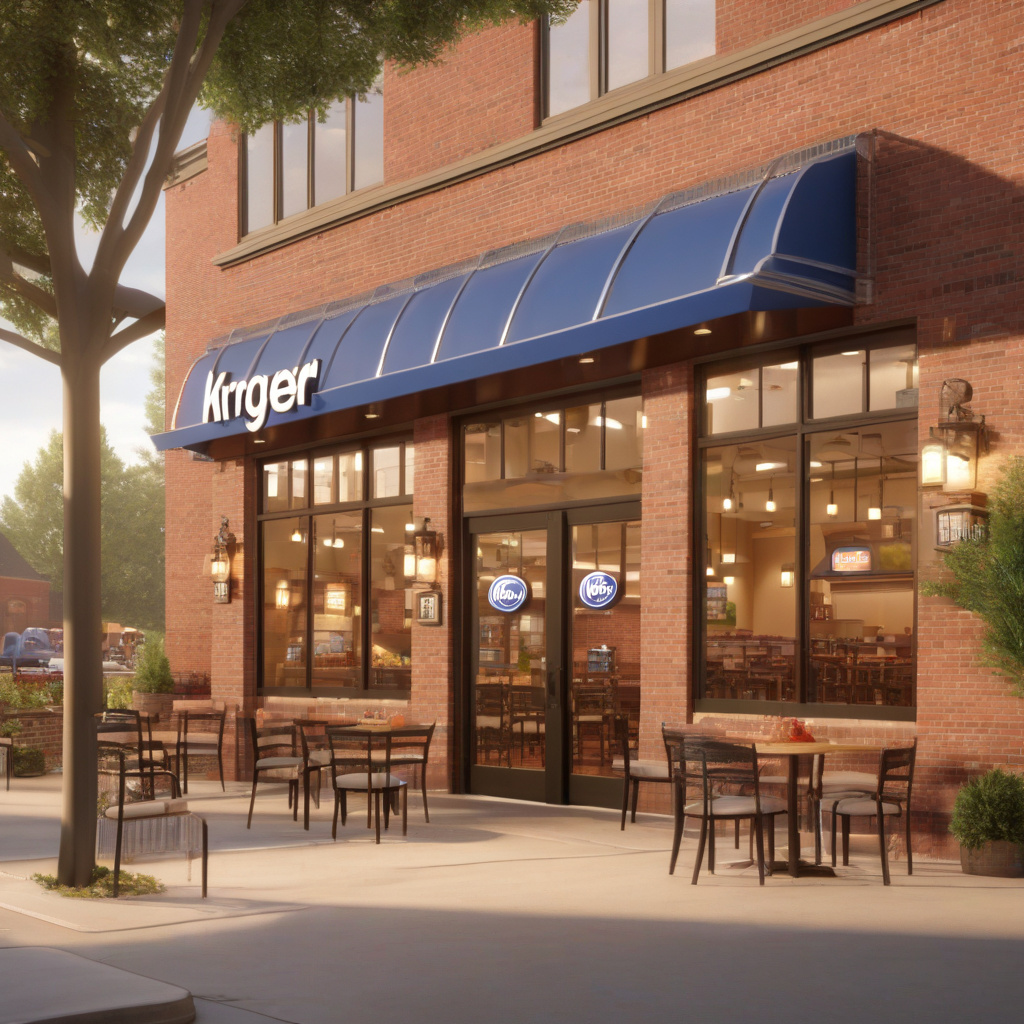Kroger Shutters Kitchen 1883 Restaurants in Kentucky and Ohio
In a surprising move, retail giant Kroger has announced the closure of most of its Kitchen 1883 restaurants located in Kentucky and Ohio. The final meal service for these locations is set to take place on April 24th, marking the end of an era for the supermarket chain’s foray into the restaurant business.
Kitchen 1883 first opened its doors in 2017, with the vision of providing customers with a unique dining experience that combined the convenience of grocery shopping with the pleasure of enjoying a freshly prepared meal in a restaurant setting. The restaurants featured a diverse menu of dishes made from high-quality ingredients sourced from Kroger’s own stores, emphasizing freshness and flavor.
Despite its initial popularity and positive reception from customers, Kroger has made the decision to close the majority of its Kitchen 1883 locations as part of a strategic shift in focus. The supermarket chain is realigning its priorities to concentrate on its core retail business, particularly in the wake of changing consumer preferences and market dynamics.
While the closure of Kitchen 1883 restaurants may come as a disappointment to loyal patrons, it also serves as a reminder of the challenges that businesses face in the ever-evolving retail landscape. Competition in the food industry is fierce, with restaurants vying for customers’ attention and dollars in an increasingly crowded market.
Kroger’s decision to streamline its operations and exit the restaurant business reflects a growing trend among retailers to optimize their resources and investments for maximum impact. By consolidating its efforts on its core business of grocery retailing, Kroger aims to strengthen its position in the market and enhance its overall competitiveness.
As Kroger closes the chapter on Kitchen 1883, it opens up new opportunities for innovation and growth in other areas of its business. The supermarket chain continues to explore ways to enhance the shopping experience for customers, both in-store and online, by investing in technologies and services that cater to the evolving needs of modern consumers.
In conclusion, the closure of most Kitchen 1883 restaurants in Kentucky and Ohio signals a strategic shift for Kroger as it refocuses its attention on its core retail operations. While the decision may mark the end of a culinary experiment, it also paves the way for new possibilities and endeavors in the dynamic world of retail.
As the retail landscape continues to evolve, businesses must adapt and evolve to meet the changing demands of consumers and market trends. By staying nimble and responsive to shifting dynamics, companies like Kroger can position themselves for long-term success and sustainability in an increasingly competitive environment.
retail, e-commerce, digital marketing, conversion rate optimization, Kroger
